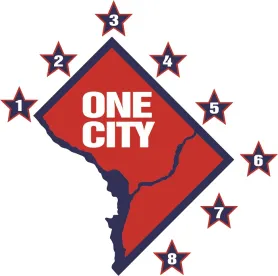On April 10, 2020, the District of Columbia enacted the COVID-19 Response Supplemental Emergency Amendment Act of 2020 (D.C. Act 23-286) (the “Emergency Act”). Among other things, Section 103 of the Emergency Act amends the Accrued Sick and Safe Leave Act of 2008 (“ASSLA”) to require employers with between 50-499 employees to provide paid declared emergency leave (“DOE Paid Leave”) for any reason allowed by the federal Families First Coronavirus Response Act (“FFCRA”). The Emergency Act is effective immediately and will remain in effect through July 9, 2020, unless extended.
Critically, the DOE Paid Leave is in addition to any leave to which employees are otherwise entitled under the FFCRA and other federal and District laws, as well as any other employer-provided leave. Nothing in the Act allows an employer to run the leave concurrently with leave under the FFCRA, despite the fact the allowable reasons for taking leave are identical. Further, the Act permits employers to require that an employee exhaust any other available leave, including under federal and District law, before taking DOE Paid Leave. Also, unlike FFCRA, there is no tax credit available for paying this leave. All of this suggests that DOE Paid Leave supplements leave under the FFCRA and other applicable laws.
Under newly enacted D.C. Code § 32-531.02a, added by Section 103, eligible fulltime employees employed for 15 days will be able to be able to take paid DOE Paid Leave for covered reasons for two full weeks of work, up to 80 hours. Part-time employees will also be able to take two full weeks off work, up to the usual number of hours each particular employee works in a two-week period. Employees must be paid their regular rate, or a rate equivalent to total gross earnings in the most recent two week period, including tips and commissions.
If an employee exhausts all DOE Paid Leave, yet still needs to be absent from work, the law requires employers to inform an employee of any remaining available leave, both paid and unpaid. For instance, employees may be able to take unpaid declaration-of-emergency (“DOE”) leave under the expanded DCFMLA (“DOE DCFMLA Leave”). As we previously reported, the District amended the DCFMLA to allow employees to take DOE DCFMLA Leave for an indefinite period if they are unable to work as the result of circumstances giving rise to a public health emergency declared by the Mayor.
Notably, health care providers are excluded from the definition of employer under the Emergency Act and therefore do not have to provide DOE Paid Leave to their employees. The Act defines “health care provider” consistently with the expansive definition in the recent regulations under the FFCRA. However, as the Emergency Act amends ASSLA, the broader ASSLA definition of “family member” will apply.
Employers cannot require an employee to provide certification of the need to use DOE Paid Leave unless the employee uses 3 or more consecutive working days of paid leave. Even when certification is required, the employee does not have to provide it until one week after the employee’s return to work. An employer may not require certification if it does not contribute to a health insurance plan for the employee.




 />i
/>i

